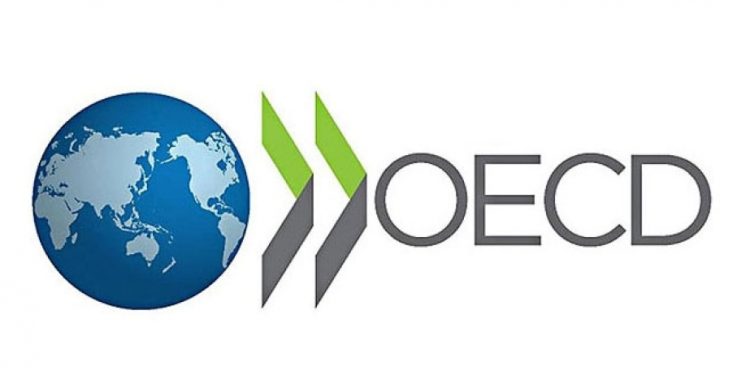
In the ever-evolving landscape of global commerce, nations continuously seek pathways to enhance their standing and foster beneficial partnerships. The journey towards integrating into prestigious organizations underscores the strategic vision of a nation eager to align itself with a broader economic framework. This endeavor embodies a commitment to elevating regulatory standards and enhancing cooperation on multiple levels.
The aspiration to engage more deeply with international networks can lead to significant positive developments. By embracing collaborative frameworks, a nation not only positions itself for the flow of investments but also nurtures innovation and competitiveness. Such initiatives are critical in navigating the complexities of the modern economic environment.
As the focus shifts towards establishing vibrant connections, the resulting transformation can create a ripple effect, influencing various sectors. Enhanced trade relations and investment inflows can drive advancements in infrastructure, technology, and human capital, ultimately contributing to the overall prosperity of society. The implications of this strategic move may reverberate across industries, beckoning a new era of dynamic growth.
Indonesia’s Path to OECD Membership
In the quest for enhanced global economic integration, a nation is strategically positioning itself to join an influential international organization. This endeavor is not merely about fulfilling membership criteria but is viewed as a transformative step towards elevating the country’s economic framework and international standing. By aligning with established standards and practices, this nation seeks to reap the benefits of collaboration with some of the world’s most advanced economies.
The journey involves a comprehensive assessment of existing policies, regulatory frameworks, and various sectors within the economy to meet the rigorous expectations set by the target organization. Emphasizing the significance of sustainable development, governance improvements, and social equity, the nation is focused on addressing critical challenges that have historically impeded growth and competitiveness.
Furthermore, engaging with existing members serves as a catalyst for knowledge exchange, best practices, and technological advancements. This approach promises not only to enhance local industries but also to bolster foreign investment, ultimately driving sustainable progress. The commitment to reforms and alignment with international benchmarks reflects a forward-thinking vision, which is essential to navigate today’s complex economic landscape.
As the process unfolds, it is anticipated that the nation will unlock new avenues for trade, investment, and innovation. The ripple effects of potential membership extend beyond economic parameters, fostering a more robust political and diplomatic engagement on the global stage. This strategic move is set to redefine the nation’s role within the international community, carving a path towards a more prosperous and resilient future.
Benefits of Joining the OECD
Becoming part of a prominent international organization can bring numerous advantages to a nation. Such affiliation not only enhances a country’s credibility on the global stage but also opens doors to a wealth of resources, best practices, and collaborative networks. This integration facilitates progress in various sectors, ultimately contributing to overall national development.
Enhanced Global Cooperation
Engagement with established nations fosters enhanced collaboration and knowledge exchange. By participating in joint initiatives, a country can adopt successful strategies that have been proven effective elsewhere. This synergy often leads to improved governance, innovation, and competitiveness.
Access to Resources and Expertise
Membership provides access to a multitude of resources, including research, data, and expert opinions. These tools can significantly bolster policy formulation and implementation. Moreover, countries can leverage these insights to address specific challenges and improve public services, thus promoting sustainable growth.
In summary, aligning with a leading international group brings forth a host of benefits, paving the way for a brighter future and facilitating advancements across multiple domains.
Economic Growth Opportunities for Indonesia
The potential for financial advancement in the archipelago is vast, shaped by various factors that contribute to an environment ripe for expansion. The nation’s youthful population, rich natural resources, and strategic geographical position create a unique setting for nurturing innovation and attracting investments. This landscape encourages both local businesses and international enterprises to thrive and explore new avenues for development.
Investment in Infrastructure
One significant pathway to enhance productivity lies in the enhancement of infrastructure. Modern transportation networks, reliable utilities, and state-of-the-art digital connectivity are crucial for fostering a competitive landscape. Strengthening these foundations not only facilitates trade but also encourages investment from external stakeholders, paving the way for new ventures and greater market accessibility.
Innovation and Technology
Embracing technological innovation is another key component in the quest for prosperity. By prioritizing research and the adoption of cutting-edge solutions, the nation can unlock potential across various sectors, including agriculture, manufacturing, and services. Fostering a culture of creativity and entrepreneurship will further empower individuals, enabling them to contribute to economic dynamism and sustainability.
Challenges in the Membership Process
Joining a prestigious international organization often entails navigating a complex landscape of requirements and expectations. The journey towards inclusion in such an elite group can come with significant hurdles that require careful consideration and strategic planning. These obstacles can include economic, political, and administrative factors that must be thoroughly addressed to achieve successful integration.
One of the most pressing difficulties revolves around aligning national policies with the standards and practices of the targeted institution. This process may involve substantial reforms across various sectors, including governance, trade, and environmental policies. Additionally, potential members must demonstrate their commitment to transparency, accountability, and sustainable practices, which can be challenging in diverse socio-economic contexts.
|
Challenges |
Description |
|---|---|
|
Policy Alignment |
Adapting national legislation and practices to meet international benchmarks. |
|
Economic Reforms |
Implementing necessary changes to stabilize and strengthen the economy. |
|
Governance Issues |
Ensuring transparent and efficient public administration. |
|
Public Support |
Gaining citizen backing for reforms and integration efforts. |
Moreover, there is often a significant need for public backing to facilitate these changes. Engaging citizens and stakeholders in the reform process is essential to ensure a smooth transition and to overcome resistance that may arise from vested interests. Building a robust communication strategy that clearly articulates the benefits of joining the group can enhance this support.
Ultimately, while the path to integration may be fraught with challenges, addressing these issues head-on can yield substantial long-term benefits, paving the way for growth and strengthening relationships on a global scale.
Impact on Foreign Investment Trends
The pursuit of enhanced international standards and collaboration can significantly reshape the landscape of capital influx from abroad. As nations seek to integrate more deeply into global economic frameworks, they often witness a shift in investor confidence and a reevaluation of market potential. This transformation is crucial for attracting diverse funding sources and fostering sustainable development.
Positive Repercussions on Investor Sentiment
As a nation aligns itself with recognized global practices, it tends to improve its regulatory framework and economic stability. Such advancements typically lead to heightened trust among potential investors. Confidence influences their decision-making processes, often resulting in increased inquiries and commitments to invest. Strengthened governance and transparency are vital attributes that can draw foreign stakeholders seeking favorable conditions.
Sectoral Opportunities and Trends
Engagement with international frameworks creates numerous prospects across various sectors. Industries such as technology, renewable energy, and manufacturing frequently become focal points for external funding. Enhanced cooperation can stimulate innovation and contribute to the modernization of local enterprises. As investments flow into these key areas, they not only elevate productivity but also create employment opportunities, further driving the cycle of growth.
Sector-Specific Growth Potential
This section explores the distinct possibilities within various industries that can lead to enhanced performance and development. By identifying key sectors ripe for expansion, stakeholders can strategize effectively to harness these avenues for increased prosperity.
Key Industries with High Potential
-
Agriculture: Leveraging modern techniques can boost productivity and sustainability.
-
Technology: The digital landscape offers vast possibilities for innovation and entrepreneurship.
-
Tourism: Strengthening local attractions and services can significantly enhance visitor experiences.
-
Enhancing production capabilities can meet both domestic and export demands.
Strategies for Advancement
-
Invest in research and development to drive innovation.
-
Foster public-private partnerships to enhance resource allocation.
-
Promote education and training programs to develop a skilled workforce.
-
Encourage sustainable practices that align with global standards.
By concentrating efforts on these particular sectors, there is a significant potential for transformation and prosperity, contributing to a dynamic economic landscape.
Long-Term Implications for National Policy
The pursuit of elevated international status carries profound ramifications for a nation’s strategic framework. Through integration into established global networks, a country can reshape its policies to embrace enhanced collaboration, sustainability, and socioeconomic resilience. As it navigates this transformative journey, aligning local strategies with international standards will become essential.
Policy Alignment and Reform
One significant consequence will be the necessity for policy reforms to align with globally recognized benchmarks. This alignment can lead to improved governance, transparency, and accountability. Standardized regulations may facilitate smoother trade relationships, enhance investor confidence, and foster innovation. Consequently, crafting a cohesive and responsive policy environment will be imperative for long-term prosperity.
Socioeconomic Development Focus
The integration process will also necessitate a renewed focus on sustainable development. Policymakers will need to prioritize economic diversification, social equity, and environmental stewardship. By embracing these principles, the nation can cultivate a robust economy while ensuring that growth is inclusive and environmentally sound. Such a holistic approach will not only enhance the quality of life for citizens but also secure a competitive advantage in the global arena.
Q&A: Indonesia seeks to join oecd
What are the main reasons Indonesia is seeking OECD membership?
Indonesia is aiming for OECD membership primarily to enhance its economic growth, attract foreign investment, and improve governance standards. Membership in the OECD, which is comprised of economically developed countries, will provide Indonesia with access to best practices, data, and policy recommendations that can stimulate further economic development. Additionally, Indonesia seeks to strengthen its global standing, showcase its commitment to economic reforms, and create a more favorable business environment that could lead to sustainable growth.
How might OECD membership benefit Indonesia’s economy specifically?
OECD membership could benefit Indonesia’s economy in several ways. Firstly, it can enhance the country’s credibility in the eyes of investors and international markets, leading to increased foreign direct investment (FDI). Secondly, the OECD provides a platform for knowledge exchange and access to advanced economic research, which can inform better policy-making. Thirdly, membership can promote improved regulatory frameworks, fostering a more competitive business climate. Finally, it may lead to greater trade opportunities and partnerships with other member states, ultimately contributing to higher economic growth rates.
What challenges does Indonesia face in becoming an OECD member?
Indonesia faces several challenges in its bid for OECD membership. Key among these is the need to meet stringent OECD standards in areas such as governance, anti-corruption measures, environmental sustainability, and economic policy. The country must also enhance its data collection and reporting mechanisms to align with OECD practices. Beside these institutional and regulatory hurdles, there may be domestic resistance to some of the reforms required, as well as the need for significant investment in various sectors to meet the OECD criteria. Furthermore, ensuring that these reforms are implemented effectively is crucial to proving Indonesia’s commitment to meeting OECD expectations.
What steps is Indonesia currently taking to prepare for OECD membership?
To prepare for OECD membership, Indonesia is actively working on various reforms aimed at aligning with the organization’s standards. This includes improving its regulatory framework, enhancing transparency in governance, boosting the ease of doing business, and promoting sustainable development practices. The Indonesian government is also investing in education and skills development to support its workforce and improve human capital. Additionally, Indonesia has been participating in OECD discussions and collaborating with existing member countries to understand best practices and identify areas of improvement. The government’s commitment to these reforms is crucial for meeting the OECD’s assessment criteria.
How does Indonesia’s potential OECD membership impact its relationship with other countries in the region?
Indonesia’s potential OECD membership could significantly alter its relationships with neighboring countries in Southeast Asia. As the largest economy in the region, Indonesia’s accession to the OECD may inspire other countries to pursue similar objectives, potentially leading to a collective push for economic reforms and improvements in governance across ASEAN. It could also enhance Indonesia’s diplomatic standing and influence within regional discussions about economic policies. Furthermore, closer ties and collaborative opportunities with OECD member nations could foster stronger economic partnerships, benefitting the region as a whole through increased investment and trade opportunities. However, it may also lead to increased competition among regional countries striving for similar international recognitions and standards.
What are the main benefits for Indonesia in pursuing OECD membership?
Indonesia aims to join the Organisation for Economic Co-operation and Development (OECD) to enhance its economic stability and growth. Membership in the OECD could lead to greater foreign investment, as it signals a commitment to international standards of economic governance, transparency, and democracy. Furthermore, it could improve Indonesia’s global trade relations and access to advanced economies, facilitating better technological transfer and innovation opportunities. By adhering to OECD policies, Indonesia could also boost its domestic reforms, leading to improved productivity, job creation, and ultimately higher living standards for its citizens. Overall, joining the OECD can help Indonesia position itself as a more competitive player in the global economy.
How does Indonesia’s aspiration to become a high-income country by 2045 align with its accession process to the Organisation for Economic Cooperation and Development (OECD)?
Indonesia’s aspiration to become a high-income country by 2045 is closely aligned with its accession process to the Organisation for Economic Cooperation and Development (OECD). By aligning with OECD standards and best practices, Indonesia aims to enhance its economic policies, governance, and anti-corruption efforts, which are essential for achieving high-income status. The OECD’s focus on open trade and investment, public governance, and sustainable economic growth resonates with Indonesia’s long-term vision of “Golden Indonesia 2045,” a strategic goal to elevate its global standing and ensure prosperity for its citizens.
What steps has Indonesia taken since 2007 to align with the OECD’s standards and best practices as part of its accession discussions with the organization?
Since 2007, Indonesia has undertaken significant reforms to align with the OECD’s standards and best practices as part of its accession discussions. These steps include enhancing its regulatory framework, improving public governance, and implementing anti-corruption measures. The Indonesian government, under the leadership of President Joko Widodo and Coordinating Minister for Economic Affairs Airlangga Hartarto, has also focused on promoting open trade and investment, which are key areas emphasized by the OECD. These efforts aim to prepare Indonesia for full membership and strengthen its position as the largest economy in Southeast Asia.
How did OECD Secretary-General Mathias Cormann view Indonesia’s potential to become the first Southeast Asian country to join the OECD during his discussions in Jakarta in 2023?
OECD Secretary-General Mathias Cormann expressed a positive outlook on Indonesia’s potential to become the first Southeast Asian country to join the OECD during his discussions in Jakarta in 2023. He acknowledged Indonesia’s significant progress in aligning with OECD standards and its growing role as a global economic player. Cormann emphasized the importance of Indonesia’s commitment to open trade, investment, and anti-corruption efforts, which are crucial for the country’s successful accession. He also highlighted Indonesia’s strategic importance in the region and its potential to contribute to the OECD’s global agenda.
What role does Economic Minister Airlangga Hartarto play in Indonesia’s OECD accession process, and how does it connect to the country’s broader economic goals?
Economic Minister Airlangga Hartarto plays a central role in Indonesia’s OECD accession process by coordinating the country’s economic policies and reforms to align with OECD standards. His leadership is crucial in driving the necessary regulatory and governance changes to meet the organization’s best practices. This process is directly connected to Indonesia’s broader economic goals, including becoming a high-income country by 2045 and solidifying its position as the largest economy in Southeast Asia. Hartarto’s efforts are aimed at ensuring that Indonesia’s economic development is sustainable, inclusive, and globally competitive.
What are the key challenges and opportunities Indonesia faces as it seeks to complete its OECD accession process within the next two to three years?
As Indonesia seeks to complete its OECD accession process within the next two to three years, it faces several key challenges and opportunities. The challenges include aligning its economic and governance policies with the stringent standards set by the OECD, particularly in areas such as anti-corruption, public governance, and regulatory frameworks. However, this process also presents significant opportunities for Indonesia to strengthen its global economic position, attract more foreign investment, and enhance its public institutions. Successfully navigating this process will help Indonesia achieve its long-term goal of becoming a high-income country by 2045 and reinforce its role as a significant global player.




